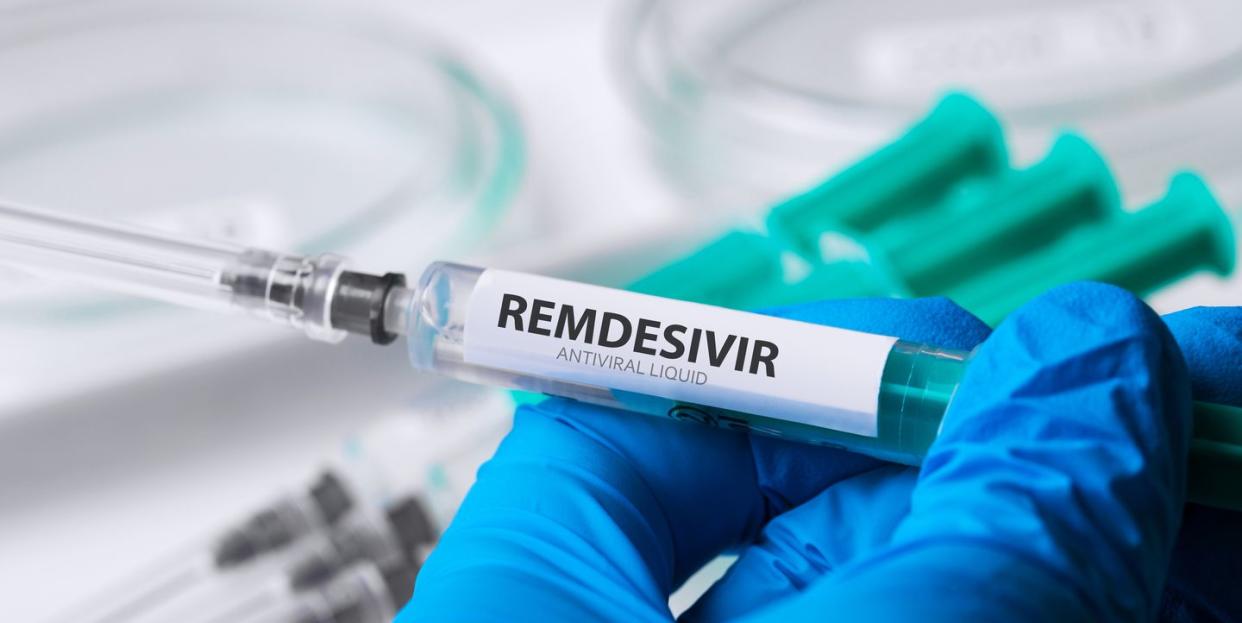Can this antiviral medication be used to treat COVID-19?

Remdesivir is an anti-viral medication that has recently been approved to be used in the treatment of COVID-19. Dr Roger Henderson looks at how Remdesivir works, how effective it may be, and its possible side-effects.
In December 2019 a new virus that primarily caused a respiratory illness was identified and given the name COVID-19. Its more correct name is Severe Acute Respiratory Syndrome Coronavirus, or SARS-CoV-2, although it is still usually called COVID-19 (or sometimes just Covid) by most people. COVID-19 is extremely infectious and causes fatalities due to severe pneumonia and respiratory failure.
The subsequent global pandemic has led to a massive scientific push to find potential treatments because treatment options are limited. Although there is no cure at present and a vaccine is still not available at the time of writing, the US Food and Drug Administration approved Remdesivir as a treatment for COVID-19 and it is now currently approved in around 50 countries for emergency treatment of this new virus, including the UK.
What is Remdesivir?
Remdesivir - usually sold under the brand name Veklury – is a broad-spectrum antiviral medication, given intravenously (directly into a vein) rather than by a tablet. It is a type of treatment called an adenosine nucleotide prodrug, which is metabolised once inside body cells to form the active substrate called remdesivir triphosphate and it is this which prevents the virus from multiplying by inhibiting a key cell structure called SARS-CoV-2 RNA polymerase.
In the UK it is indicated for the treatment of adults and young people aged 12 years and over and weighing at least 40kg who is hospitalised with suspected or laboratory-confirmed SARS-CoV-2 infection with pneumonia and requiring supplemental oxygen.
There is some evidence that it may shorten the time it takes to recover from the infection compared to placebo (‘dummy treatment’) but there are also a number of studies that have suggested it may have relatively little effect and so it must not be thought of as any kind of ‘wonder drug’ that can be used to cure COVID-19.
Remdesivir side-effects
What are the potential side-effects of Remdesivir?
In healthy trial volunteers, the main side-effect experienced when taking Remdesivir is altered levels of liver enzymes in the blood (a sign of liver inflammation or damage to liver cells).
In people with COVID-19 the most common side-effect is nausea.
Other common side-effects include sweating and low blood pressure.
Remdesivir treatment
When could Remdesivir be considered as a treatment? Remdesivir is only considered when the hospital specialists involved in the care of a patient who is severely unwell in hospital with COVID-19 believe it may be necessary or helpful to that patient.
Remdesivir is not a drug that is used routinely. Factors that can affect this decision – and the possible effectiveness of the drug – include:
The age of the patient.
Severity of the illness (this includes the need for oxygen and mechanical ventilation).
Co-existing health problems of the patient.
Time from the onset of symptoms.
The fact that Remdesivir treatment is given intravenously may also have an impact on its use.
We are still learning a huge amount about COVID-19 and the possible ways of treating it, and the science is currently changing on an almost weekly basis. For the moment however, treatments such as Remdesivir - as well as more established treatments such as Dexamethasone - are available to intensive care specialists to help fight in the global war against the SARS-CoV-2 pandemic.
Last updated: 02-11-20
You Might Also Like

